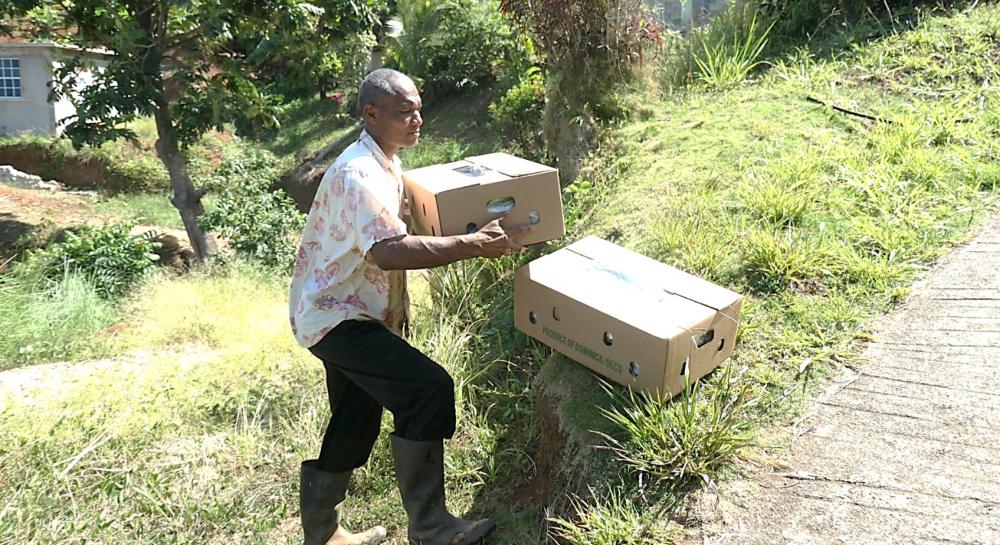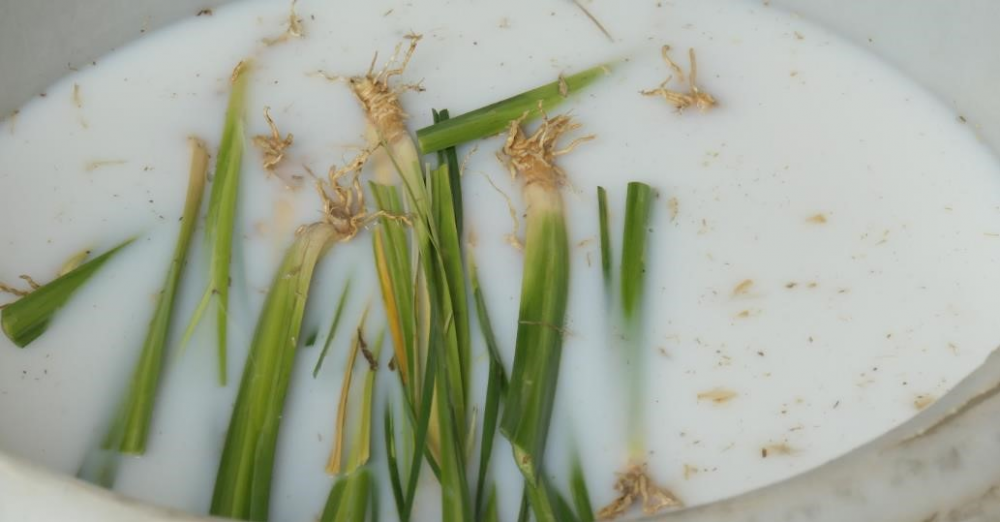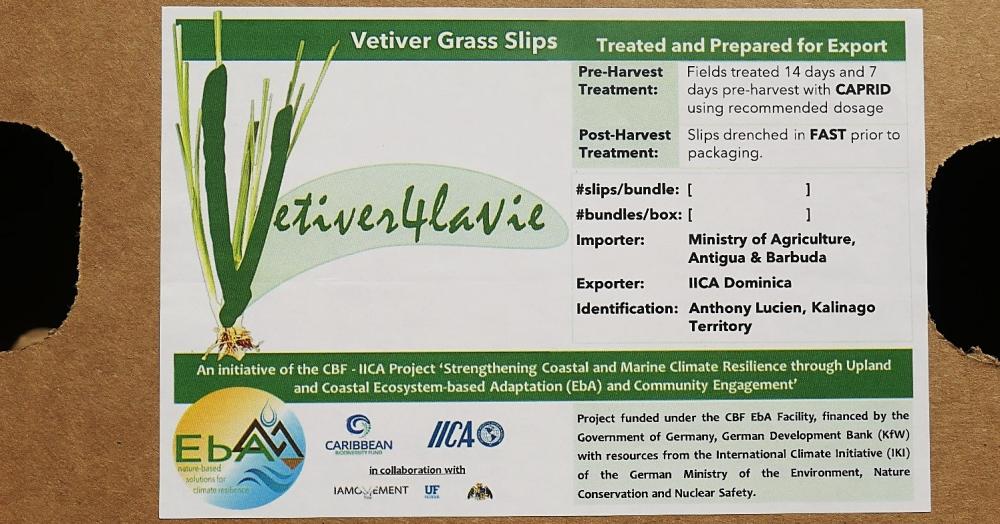IICA, the Caribbean Biodiversity Fund (CBF), IAMovement and University of Florida partner to bring grassroots solutions to the climate change challenge in vulnerable island communities.

Kalinago Territory, Dominica, June 8, 2021 (IICA). – The Inter-American Institute for Cooperation on Agriculture (IICA) and the Caribbean Biodiversity Fund (CBF) Ecosystem-based Adaptation (EbA) project hit a milestone with the first-time export of vetiver grass from Dominica to Antigua and Barbuda.
The project, “Strengthening Coastal and Marine Climate Resilience through Upland and Coastal Ecosystem Based Adaptation and Community Engagement”, is supporting climate change adaptation and poverty alleviation in Antigua and Barbuda, Dominica, Saint Lucia and Trinidad and Tobago. It is funded under the CBF EbA Facility, financed by the Government of Germany, German Development Bank (KfW) with resources from the International Climate Initiative (IKI) of the German Ministry of the Environment, Nature Conservation and Nuclear Safety.

Vetiver is seen as a green engineering solution to climate change. It is typical to Dominica, with farmers maintaining hedgerows in their fields, communities and around their homes to control water flow and soil erosion. One such farmer, Anthony Lucien of the Kalinago Territory sees vetiver as an inseparable part of Kalinago agriculture and culture.
“We need to keep our culture alive and, as a farmer, I am playing my part in growing the raw materials that my grandfather, father and people in my community still use to weave the baskets, mats and other crafts”, Lucien said.
Selected to supply the vetiver grass slips to Antigua and Barbuda, he is proud to be part of this historical moment and project milestone.
Antigua and Barbuda have no significant sources of vetiver, hence the supply from Dominica. Under the project, the IICA Delegations and Ministries of Agriculture Plant Protection Units in Antigua and Barbuda, and Dominica coordinated a process to complete a Pest Risk Assessment (PRA), a first for the region.
Kent Coipel of IICA Dominica coordinated the process of identifying and preparing the grass for export. The project provided Lucien with approved chemicals and safety wear for in-field treatment of plants and post-harvest treatment of clumps and slips, a first for Dominica.

In Dominica, the EbA project is being implemented in the rural areas of Petite Soufrière and Kalinago Territory, where the populations depend on coastal, marine and upland ecosystems for their livelihoods. These communities and their ecosystems are extremely vulnerable to climate change and adaptation and, as a consequence, mainstreaming grassroots EbA solutions will be important to building their environmental, economic and social resilience. This is in keeping with Dominica’s vision of becoming a resilient nation.
Coipel acknowledged the full and hands-on support of the Ministry of Agriculture of Dominica Plant Protection and Quarantine, and Extension Units in facilitating the Pest Risk Assessment, supervising in-field and post-harvest treatments, and clearing the packages for shipment on June 1st. This is the first batch of 2,180 vetiver grass slips of a total of 7,000 to be exported to Antigua under the project brand ‘Vetiver4lavie’ (i.e., vetiver for life). They will be received by the IICA Delegation and the Ministry of Agriculture of Antigua and Barbuda for propagation to supply the grass for green engineering soil and land amelioration / rehabilitation solutions in the Cooks Landfill and training of young persons in vetiver handicraft as viable green business livelihoods.
More information:
EbA Project Management Unit











